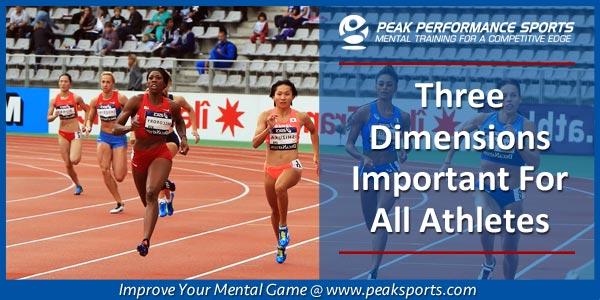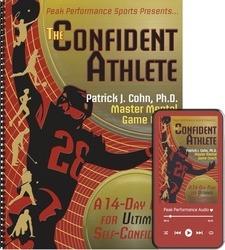
High Performance Athletes
About three years ago, I interviewed Tim Gallwey, the author of “The Inner Game” series, as I wanted his take on athlete high performance.
Gallwey was a pioneer in mental game techniques in the 1970s. He started as a tennis coach, but realized his ideas applied to way more than sports…
“At the time, I realized that the Inner Game techniques and methodology for learning would apply to many fields other than tennis, golf, and other sports. It would apply in life in general; it would apply in business. But I was mostly focused on sports at the beginning,” Gallwey told me.
He realized early in his coaching career that athletes would over-coach themselves during competition and get in the way of their performance.
“All those instructional thoughts are likely to be behavioral instructions, instructions to the body to perform in a certain way. Simply examples in tennis are get your racket back early or come through from below the ball. And they get much more technical than that.”
Instead he wanted athletes to be aware of their movement, but not command their bodies and trying to force it.
The objective is to let the body learn naturally by what feels good and what works. Words are rather clumsy he says, when it comes to body movement.
But in the competition and the heat of battle, you want to be aware. You want to be aware, and instinctive at the same time.
Gallwey’s approach to competition is to not be so finely focused as you are when you’re in the learning mode and taking instruction.
When you’re in competition, you’re not trying to learn during the competition.
“In competition, you’re steered towards high performance, and it’s best when the mind is quiet and alert. It’s not unconscious. It can be alert, be consciously clear about the play that we’re setting up or that we’re doing, the goal of the action – certain bigger things,” Gallwey said.
He said that three dimensions are important for all athletes: awareness, alertness, and focus. “Three dimensions that are important for all athletes, and one of them is awareness, focus, and relaxed concentration.”
You’ve got to be clear about the reason you’re playing or you’ll fall prey to how do I look to other people, am I getting famous, how do other people see me? That will become more important unless you’re clear of your goal.
“So the three more important things are awareness, commitment, and trust, which is ACT for short. And they belong in a triangle, because your commitment will enhance your focus; your focus will enhance your trust; your trust will enhance your commitment.”
Gallwey’s Inner Game Tips
1. Let go of over-coaching yourself during competition. Instead, you have to trust your body to perform and become a performer.
2. Have a clear intention or awareness of what your goal is and let go of the need to impress others or play well for teammates.
3. Practice to feel the movement and ingrain what you feel. Transfer instructional techniques into simple feelings your body understands easily.
Want to learn more about how to get our of the practice mindset and into the trust mindset? Check out The Fearless Athlete CD program…
Related Sports Psychology Articles
- The Mindset to Perform at a Higher Level
- Helping Athletes Manage High Expectations
- How to Perform With Higher Intensity
*Subscribe to The Sports Psychology Podcast on iTunes
*Subscribe to The Sports Psychology Podcast on Spotify
Download a free sports psychology report to improve your mental game!
Learn more about our one-on-one mental game coaching.
The Confident Athlete

“The Confident Athlete” consists of 2 audio programs that include 14 days of confidence fueling exercises and a simple to follow workbook that guides you through the 14 days, helps you apply the strategies, and customizes the exercises to your personal needs.
Let me help you put a stop to the confidence leak. You can learn to have greater levels of confidence in competition than you do in practice by identifying the specific ways you undermine your own confidence and how to convert your practice confidence into COMPETITIVE CONFIDENCE.
“The Confident Athlete” is a ground-breaking system to teach you how to think like a champion and have ultimate self-confidence every time you step on the playing field, court, track, or course. The confident athletes was developed for any athlete – junior to professional –that wants to gain confidence. However, coaches and sports parents can learn how to teach others to perform with ultimate confidence. Use my program if you want to bust a slump or just wanting higher or more consistent levels of self-confidence.
